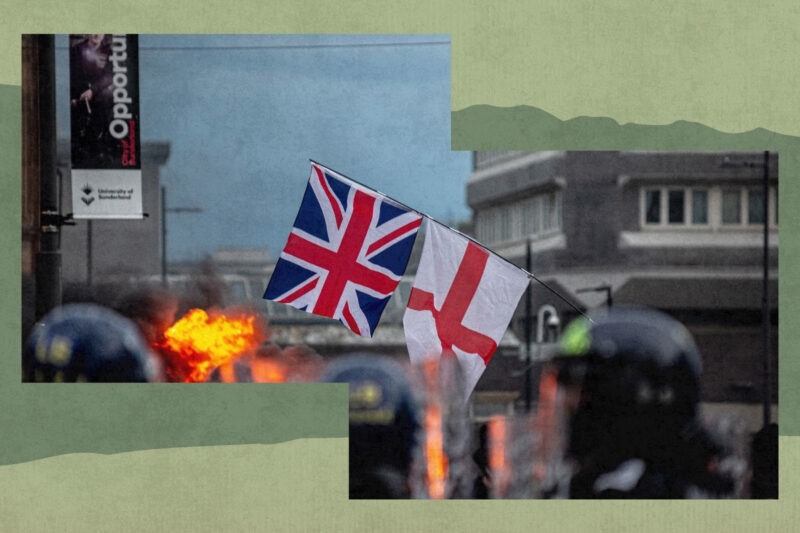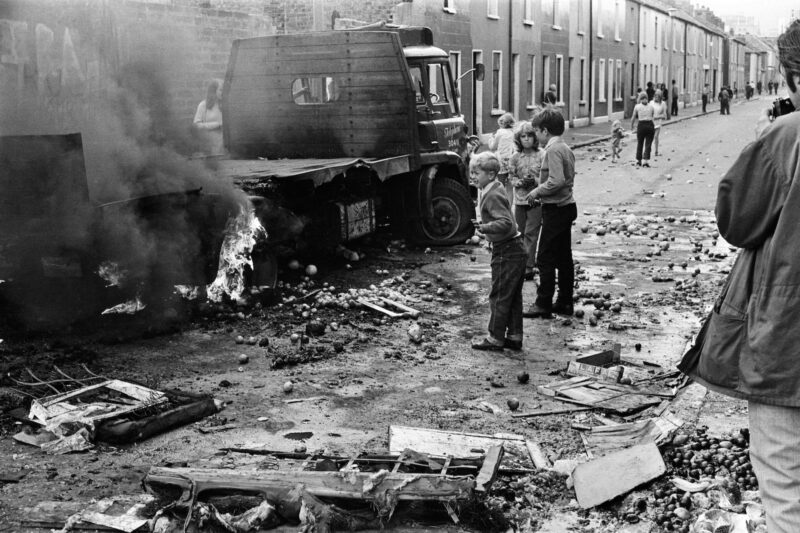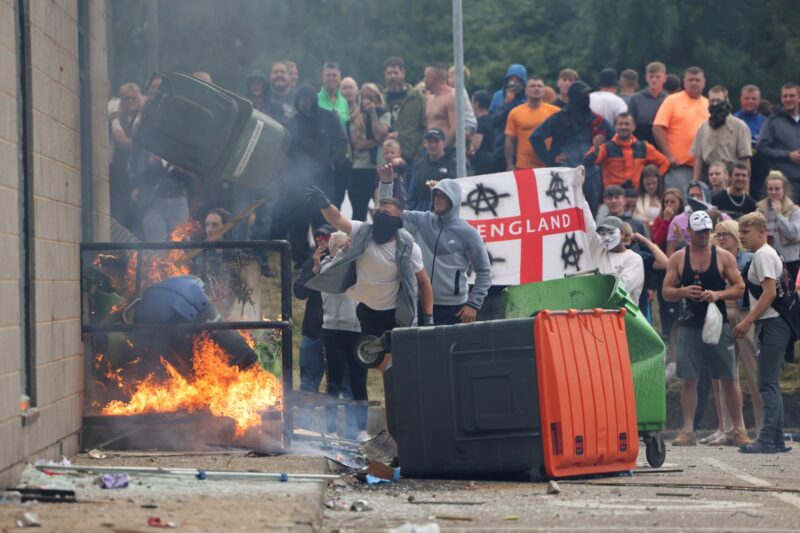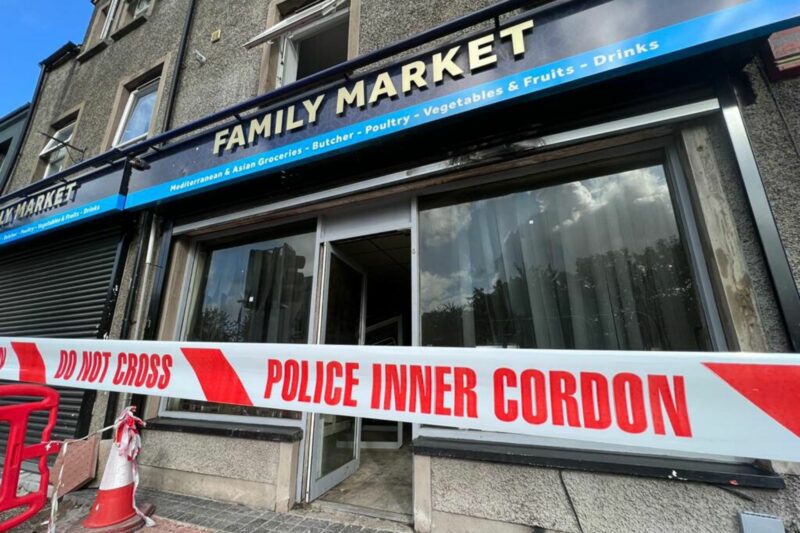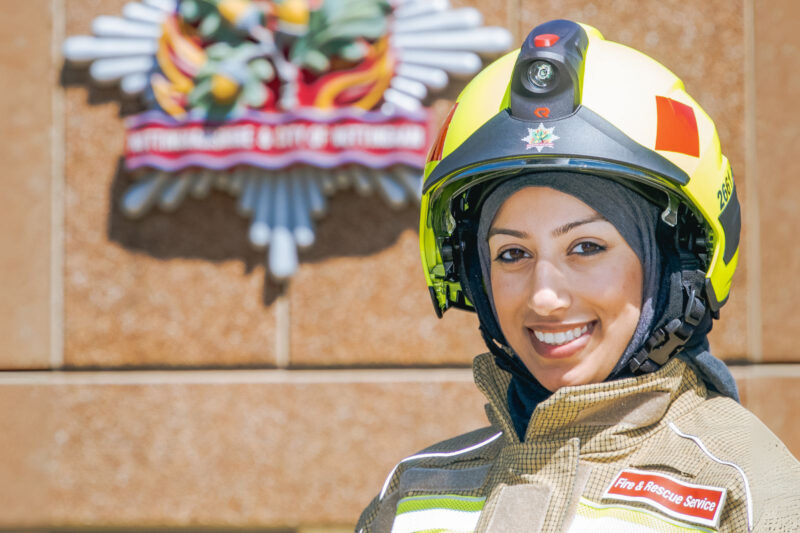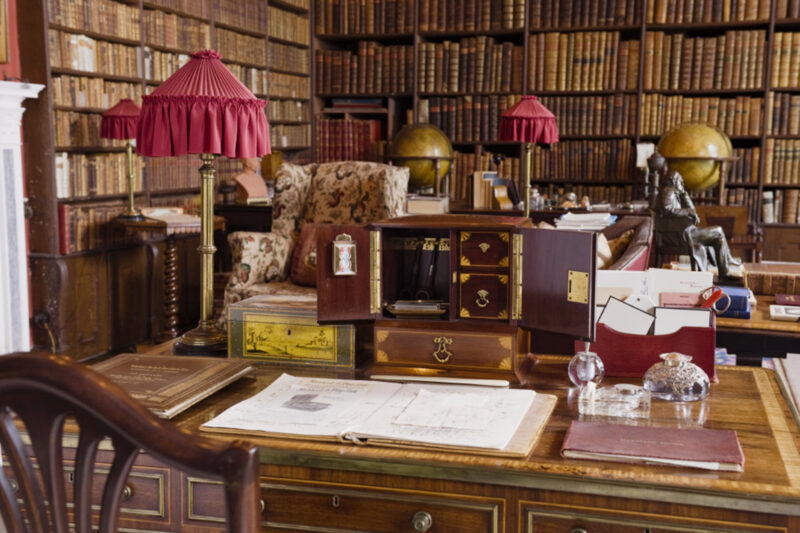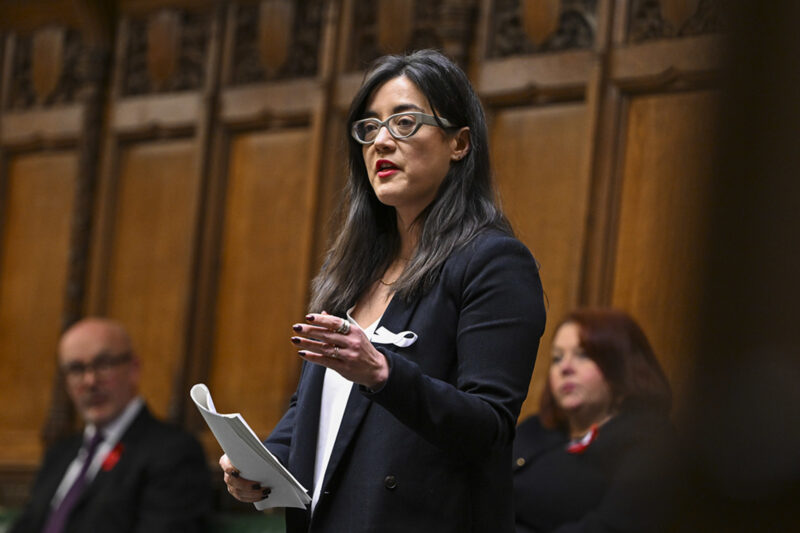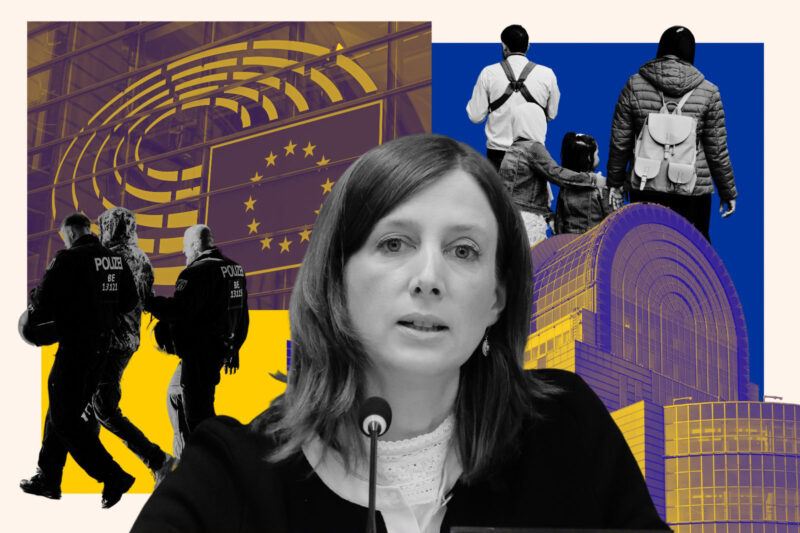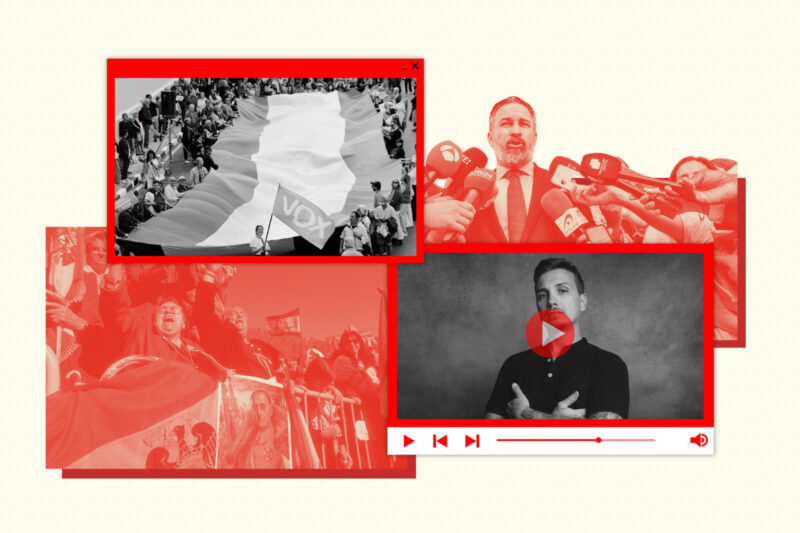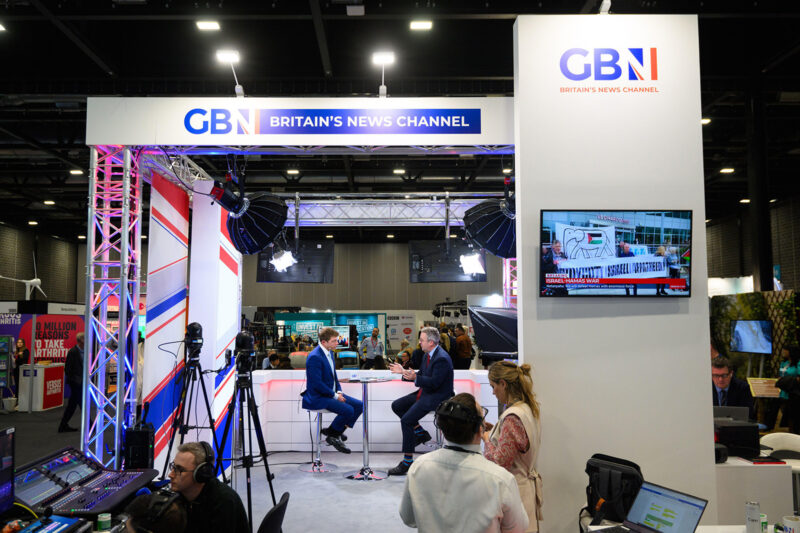‘The attack was a message: you are not safe here’
A years-long campaign of violence and intimidation directed at Muslim-run businesses and religious institutions in south Belfast has forced many to relocate or close for good. Those who have remained say they are scared for their lives
–
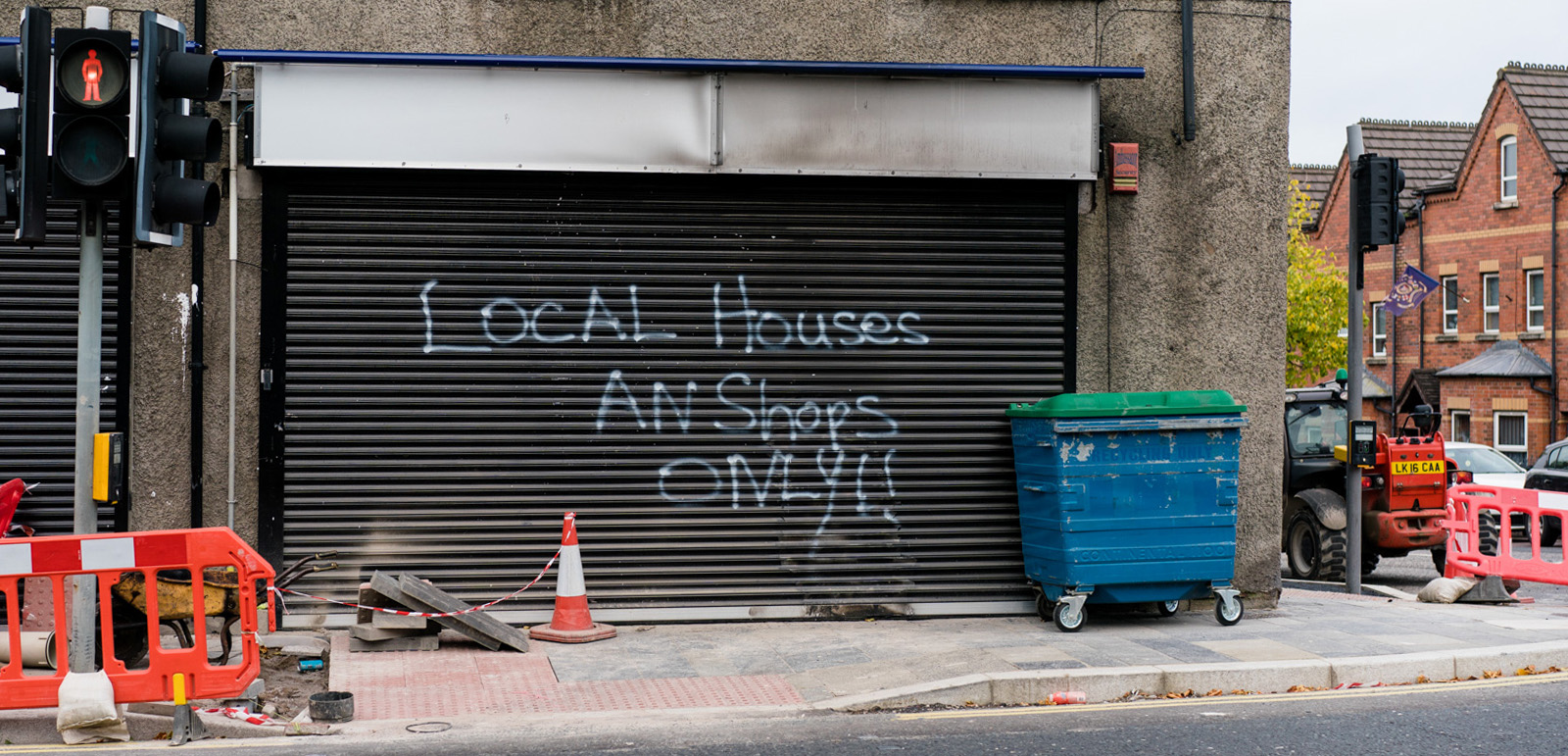
In the early hours of 18 August, emergency services were called to an economically depressed area in south Belfast, where a small local business had been set ablaze by a petrol bomb. The fire had engulfed the shop, destroying dozens of computers, laptops and other items. Large parts of the ceiling had fallen through and the heat had melted the paint on the walls to reveal the plaster underneath.
The shop’s owner, Bilal, was about to leave home at 9am when he saw an email alerting him to the fire. “I was shaking as I read it,” he said. “I didn’t know if I could believe it, or if the email was fake. It said my whole shop, everything inside it, had been destroyed.”
When Bilal arrived at the shop, he was shocked by the extent of the damage. “To see that level of destruction, the kind of force that had been used, it was scary. It felt like my life was in danger,” he said.
Bilal, who requested anonymity owing to fears of reprisal, had taken a lease for the shop in Sandy Row in April, and spent £32,000 on renovations and stock. He opened to the public in May, but the trouble began almost immediately. In the months that followed, the shop was targeted five times. Windows were smashed, the front door was vandalised with paint, the shop signage was stolen and a large bin was set on fire in front of the door.
On 15 August, three days before his shop was burned, Bilal had made a desperate appeal to Belfast City Council and a local support and safety group, Belfast South Community Resources (BSCR). “I sent them an email with photographs of the damage to the shop. I told them that I don’t feel safe, that I need help and I don’t know what to do,” said Bilal. In response to his request, the council said this was a police matter. Bilal says BSCR has yet to respond to his email.
In a public statement, the Police Service of Northern Ireland (PSNI) labelled the incident a racially motivated hate crime, and appealed for information about two males dressed in dark clothing who had been seen in the area.
A growing threat
Bilal’s shop is among the latest to face closure in a years-long campaign against Muslim-run businesses and organisations in the Belfast district of Botanic. In Sandy Row, Donegall Road and Donegall Pass, an area of less than 0.2 square miles, at least 11 ethnic-minority owned businesses have been targeted in the past year.
Though the PSNI does not record hate crimes by religious group, data show that racially motivated hate crimes in Botanic have soared by 110% since 2018. This is nearly double the increase across Belfast (65%) and almost triple the national increase throughout all of Northern Ireland (44%).
In February, the Muslim-run Belfast Multicultural Association in Botanic announced it was selling its premises in Donegall Pass after it was targeted in two major arson attacks in January 2021 and again in April 2022. At the time, a BMCA trustee told me that the premises had also come under earlier attacks including a break-in and volunteers’ cars had been vandalised.
Local shopkeepers say they have faced similar threats. One business owner described arriving at work one morning in May and finding fire damage on shuttering; another shop was set alight on two occasions in April, costing £16,000 in repairs.
A third business owner said that when he opened his shop in 2020, he was asked by locals if he would be selling halal meat. “They said: ‘We don’t want to see that,’” the shopkeeper recalled. On a separate occasion, a man came into the store and demanded a payment of £30 a week for protection from attacks.
The violence against Muslims in Botanic has spiralled. In September, less than a month after Bilal’s shop was destroyed, a grocery store on Donegall Road was set alight. The shop’s owner, Yusuf, a former primary school teacher in the Middle East, said the damage has cost him upwards of £35,000.
Yusuf, who also requested anonymity owing to fear of reprisals, came to Belfast as an asylum seeker in November 2016. The journey took 10 months and spanned 11 countries. “I felt so lucky when I arrived here. I was excited to start a new life,” he said. “I didn’t know the language, the culture. I was just happy to be in a safe place, and to have a bed to sleep on.”
Yusuf enrolled in English classes at a local college and began volunteering at a Northern Irish charity supplying medical aid to war-torn countries. He later took work as a taxi driver and saved every penny he could with the hope of starting a business. In May this year, Yusuf leased a shop on Donegall Road and filled it with groceries. He also had a halal meat counter installed.
Vandals began targeting the shop in late August even before it opened. In four separate incidents, they set fire to the shutter, damaged a window and painted graffiti: “Local houses an shops only” [sic]. Yusuf alerted the PSNI, but no arrests were made.
The attacks escalated. The shop was hit with a petrol bomb on 17 September, just minutes after Yusuf had gone home for the evening. “My landlord was the one who called to tell me. He said there had been a strong fire,” Yusuf said.
Yusuf observed the damage using a CCTV app on his phone. “If I had still been inside, it would have killed me,” he said. He believes the butcher counter made him a target. “I think people in the area knew I would be selling halal meat, and they were not happy about that,” he said. “The attack was a message for the Muslim community: that you are not safe here.”
Potential paramilitary involvement
Human rights experts in Belfast have sounded the alarm over potential links between the attacks in Botanic — a diverse area where almost one fifth of the population is from an ethnic minority background — and illegal paramilitary groups that still operate in parts of the city.
The groups have been linked to extortion, using intimidation to control who accesses social housing, drug dealing and illegal money lending.
Daniel Holder, director of the Committee on the Administration of Justice (CAJ), an independent human rights organisation, told me that the pattern of escalation and use of graffiti seen in south Belfast bore all the markers of paramilitary activity.
“These are used to deliberately intimidate people, to let them know that if they live in that area, they are likely to be vulnerable to an attack,” said Holder. “There is very clearly an overtly ethnic cleansing element to this, and I don’t use that term lightly.”
Hyphen asked the PSNI if it has investigated paramilitary involvement in recent attacks. The police force said investigations are still ongoing, and that “a central line of inquiry is that there is an element of organised criminality”.
In a report, published in June 2022, the CAJ highlighted that the involvement of loyalist paramilitarism in racist violence is “a particular problem in NI”. Holder told me that the history of the Troubles has led to an apprehension among state authorities to highlight loyalist involvement. “There’s still almost an ideological aversion to naming the activities that loyalist paramilitaries are primarily involved in, unless you can instantly lump in Republicans in the same sentence, which in this particular issue you can’t. Highlighting loyalist violence in that way has never really fitted with the state’s conflict management model and there seems to be a reluctance to do it, even though it’s just so obvious.”
Once a predominantly white, working-class area, Botanic has seen its population greatly diversify in the past decade. Yet, despite the changes, the streets of Donegall Road, Sandy Row and Donegall Pass provide a stark reminder of the area’s loyalist history. During my reporting trip to the area, I saw union jack flags and murals of the British monarchy alongside the flags of paramilitary groups, the Ulster Defence Association and the Ulster Volunteer Force.
“The loyalist perspective is that this is a celebration of identity and culture,” says Seán Brady, assistant director of programmes at Participation and the Practice of Rights (PPR), a Belfast-based human rights NGO. Though both paramilitary groups are proscribed, authorities usually refrain from removing the flags on public order grounds, Brady said. “They say removing those would cause tension among community relations. If a gang in London had an emblem and they started hanging it up, would the Metropolitan Police not remove those materials?”
He continued: “Imagine you live in this area, and you’ve been attacked, and you see the power of these groups represented everywhere. What can you do about it?”
Economic consequences
Data from the Northern Ireland Statistics and Research Agency show that Sandy Row, Donegall Pass and Donegall Road rank in the 20% of most deprived areas of Northern Ireland.
Local Muslim organisations have often stepped in to help vulnerable residents. During the Covid-19 pandemic, the Belfast Multicultural Association began offering food parcels and established food and clothing banks. The hub, which had around 500 visitors each week, also provided a laundry room and shower facilities for homeless people. Before it was forced to close, the association planned to open a furniture bank.
Besides the toll on Muslims in the area, minority rights groups said the attacks have weakened an already depressed local economy. Takura Makoni, policy officer at the African and Caribbean Support Organisation Northern Ireland, gave the example of Bilal’s shop, which attracted a diverse customer base because it offered worldwide money transfer services. “When people visited that shop, they would have walked past the pharmacy, the local supermarket, and they likely would have gone inside and spent money.
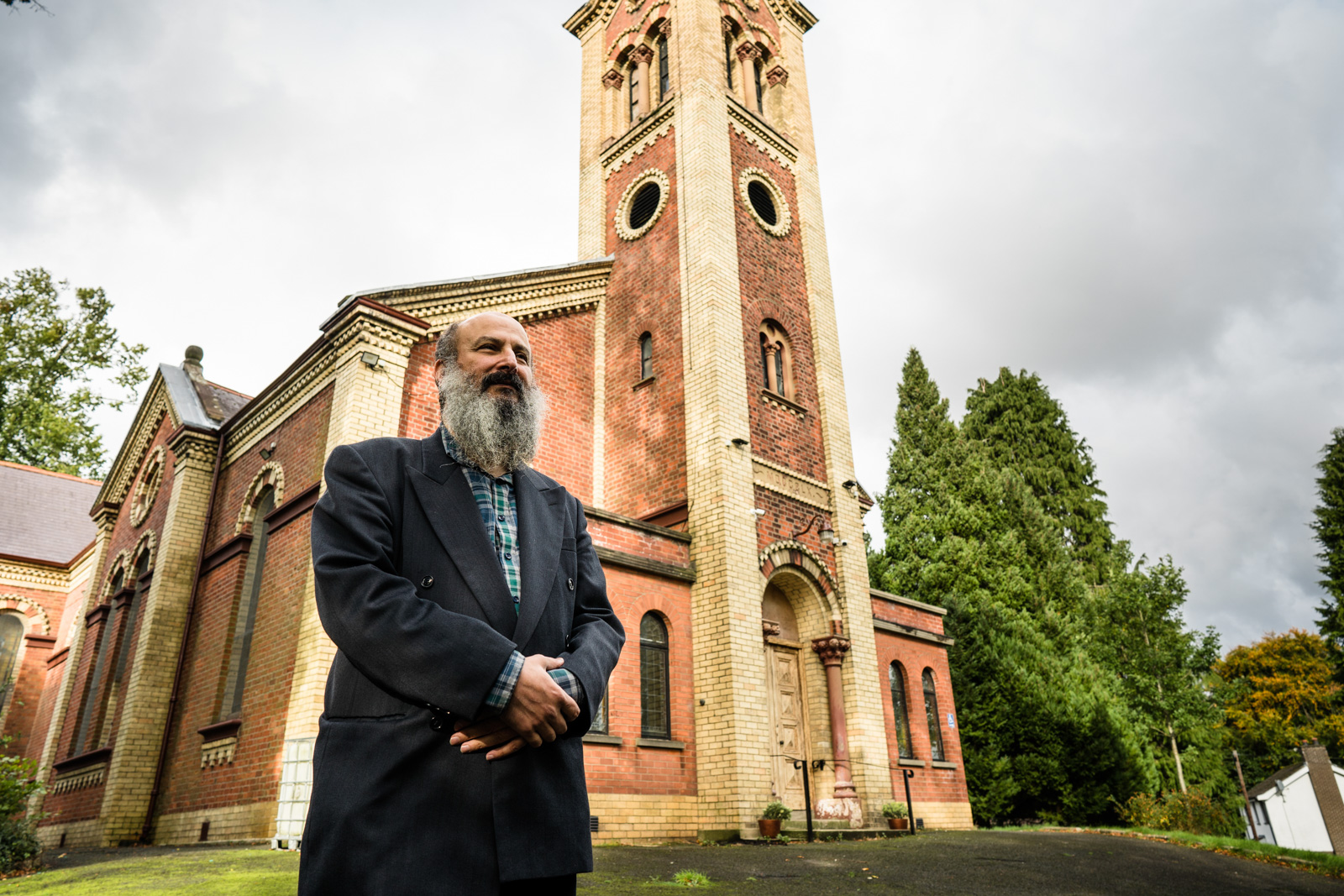
“Often when the news comes on and you see an ethnic-minority-owned business has been burned down, there’s a misconception that this is only affecting people that look like this, but it affects all of us,” Makoni added.
Members of Belfast’s Muslim community said a culture of Islamophobia and racism had become “normalised” in some parts of the city. A number of women at the Belfast Islamic Centre told me about their experiences. One described how someone had recently tried to pull off her headscarf inside a supermarket. Another woman said she had been called a “raghead”.
In Dunmurry, in south-west Belfast, three flags bearing swastikas and the Nazi SS symbol were mounted outside Iqraa mosque on the evening of 22 August. Jamal Iweida, imam and chairperson of the mosque, said CCTV showed the perpetrator carrying a stepladder and hanging the flags at 11pm as worshippers prayed inside.
Though it was the first serious incident at the mosque, staff have long been cautious of attacks, Iweida said. “When we come inside to pray, we have to lock the doors. I have no doubt the overwhelming majority of people in Belfast are very kind, but we cannot risk leaving it open.”
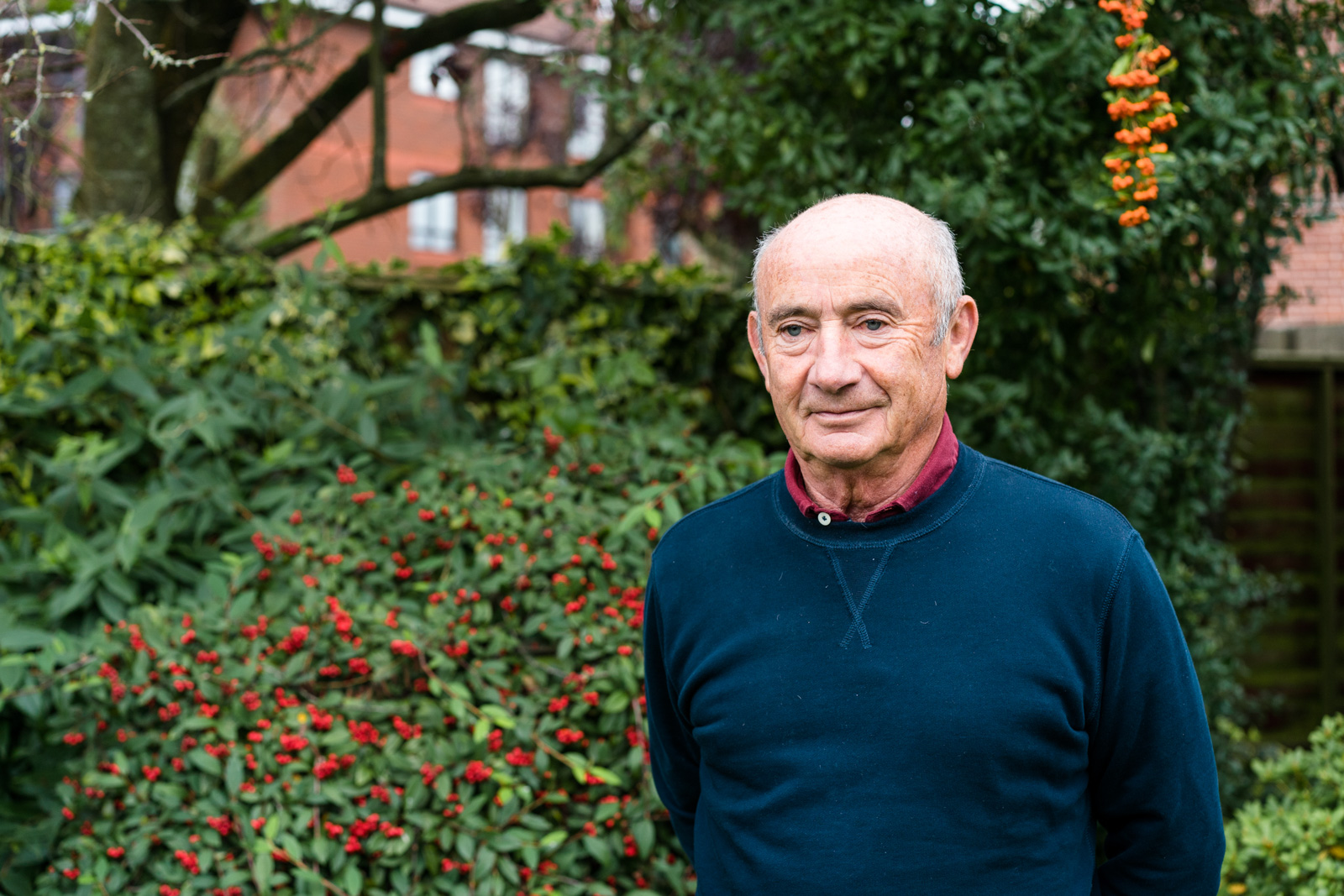
Belfast responds to racist attacks
In the days after the attack on Yusuf’s shop, United Against Racism Belfast held a rally in the city centre attended by more than 100 people, including local politicians, city residents and community representatives. There were speeches by leaders from women’s rights group Reclaim the Agenda, the Northern Ireland Public Service Alliance trade union, and PPR, to name a few.
A few days after the march, I met Michael Black, chair of the Belfast Jewish Community. He expressed his support for the victims and the local Muslim community. “We have great sympathy for them. Given our history, our antennae are always very sensitive to any form of racial and religious hatred, and we know the fear that Muslim people must be feeling.”
With the attacks on Muslims at an all-time high, local organisations such as PPR say the state is failing to defend against the violence. The PSNI has yet to make any arrests in both Yusuf and Bilal’s cases.
“We have normalised a level of violence that would be completely unacceptable in any other region of the UK,” said Seán Brady. “All those small attacks that happen before the big ones, they need robust investigation.”
Brady also criticised city politicians for underplaying the violence. Edwin Poots, Member of the Legislative Assembly for South Belfast and a former leader of the Democratic Unionist Party, told BBC Radio Ulster last month that the rise in attacks in recent months “hasn’t been a trend”. “We don’t believe there’s an organisation behind it. [It is] maybe an individual or a small number of individuals who have a particular grievance.”
Hyphen has contacted Poots’s office requesting an interview.
The shopkeepers who spoke with Hyphen said they feared that reporting future incidents could lead to more attacks. They also expressed a lack of faith that the police could bring them justice.
According to the most recent figures from PSNI, in the year up to June 2023 only 16% of racist crimes across Northern Ireland resulted in a sanction, which includes charges, cautions and penalty notices.
This low figure could point to the need to overhaul existing legislation. In contrast to England and Wales, there is no specific offence for “hate crime” in Northern Ireland law. However, when a person is found guilty, a judge can increase any sentence if it is proven that the offence was motivated by hostility against a protected characteristic, such as race.
The CAJ and the Equality Commission for Northern Ireland (ECNI), a public body that oversees equality and discrimination law, have supported calls to reform the legislation.
Two months on from the fire that destroyed his business, Bilal has reopened his shop in a new location. He lives in constant fear of being targeted again. “I can’t sleep at night because I’m worried about what might happen to the shop. This isn’t a normal way to live,” he said.
“I’d like people to know we are not different from them. We don’t bring them harm, and we don’t take from anyone. We are just doing our best to work hard and progress our lives. If we achieve, it’s from Allah. If we fail, it’s from ourselves.”
Graphics by Kath Swindells
 Newsletter
Newsletter

